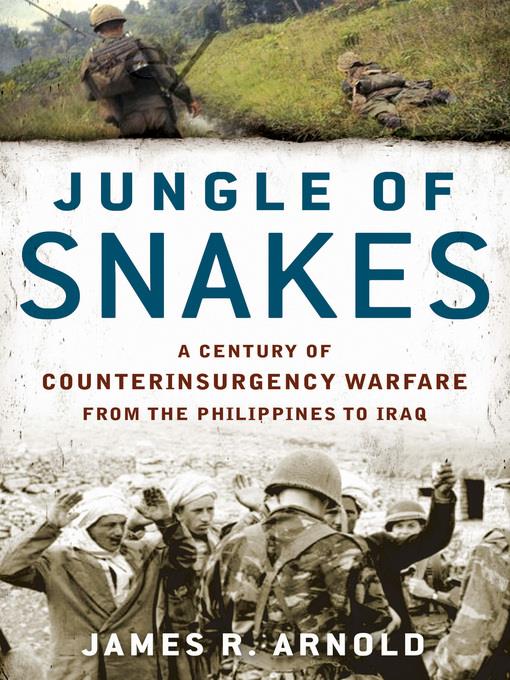
Jungle of Snakes
A Century of Counterinsurgency Warfare from the Philippines to Iraq
کتاب های مرتبط
- اطلاعات
- نقد و بررسی
- دیدگاه کاربران
نقد و بررسی

April 13, 2009
This is a thoughtful history of two successful counterinsurgency campaigns (the Philippines after 1898 and Malaya 1948–1960) and two failures (Algeria 1954–1962 and Vietnam). According to Arnold (Tet Offensive 1968
), in the Philippines, the entire U.S. army of 70,000 spent a decade brutally suppressing a poorly equipped, almost leaderless rebellion. The British campaign in Malaya enjoyed the priceless advantage that the insurgents were Chinese, a minority and traditionally hated by the majority Malays. Despite this, victory took 12 bloody years. French forces had overwhelmed Algerian rebels when French President De Gaulle ordered a withdrawal, having decided the political cost of remaining in a hostile country was too great. And American troops in Vietnam killed so many Vietcong that North Vietnamese troops took over most of the fighting, but the civilians never trusted the government to protect them—and all insurgencies feed off this failure, notes Arnold. The author makes a convincing case that killing insurgents never defeats an insurgency. That happens when a nation's population feels safe, a painful lesson that America is relearning the hard way in Iraq and Afghanistan. B&w illus.

April 15, 2009
Military historian Arnold (Crisis in the Snows: Russia Confronts Napoleon: The Eylau Campaign 1806-1807, 2007, etc.) studies past insurgency responses to help clarify the U.S. efforts in Iraq.
The author investigates four counterinsurgencies that either proved successful in putting down rebellion—the United States in the Philippines following war with Spain in 1898; the British response to the Malayan Emergency in 1948—or disastrous—the French invasion of Algeria in 1830; the U.S. quagmire in Vietnam—and offers lessons to be drawn from them. For each case, Arnold sketches a brief history of the country and how its nationalist sentiments played out against the wishes of the colonial occupiers. Gaining the support of the civilian population became a basic thrust of counterinsurgency, which Sir Gerald Templer handily phrased during the crisis in Malaya as"winning hearts and minds." Indeed, the model set by the British response in Malaya, which included the implementation of schools and elections, proved winning in"hitching the forces of nationalism to an emerging democratic Malay state." Moreover, the British quelled the rebellion within the rules of law rather than by the use of brutality and acts of terror, which would factor heavily in the French loss of Algeria. Gaining public support at home was also crucial, as America shakily learned during the insurrection in the Philippines, and abdicated completely during the Vietnam War. The mastery of intelligence, understanding the native culture and language and being committed to a long, bloody stay would become important counterinsurgency standards as well. In his valuable conclusion,"Reflections on a War Without End," Arnold quotes Roman statesman Cicero, who in 44 BCE said,"an army abroad is of little use unless there is wise counsel at home."
A reasonably argued work that delivers needed insight and historical precedent to the current war debate.
(COPYRIGHT (2009) KIRKUS REVIEWS/NIELSEN BUSINESS MEDIA, INC. ALL RIGHTS RESERVED.)

June 1, 2009
Arnold examines five insurgencies, including the Philippines over 100 years ago, as well as Malaya, Algeria, Vietnam, and Iraq, i.e., insurgencies countered variously by U.S., French, and British forces. He attempts to bring some general principles to light, e.g., the notion that information is important and that whoever can best control its flow has a great advantage in motivating the populace. For subject collections.
Copyright 2009 Library Journal, LLC Used with permission.

























دیدگاه کاربران